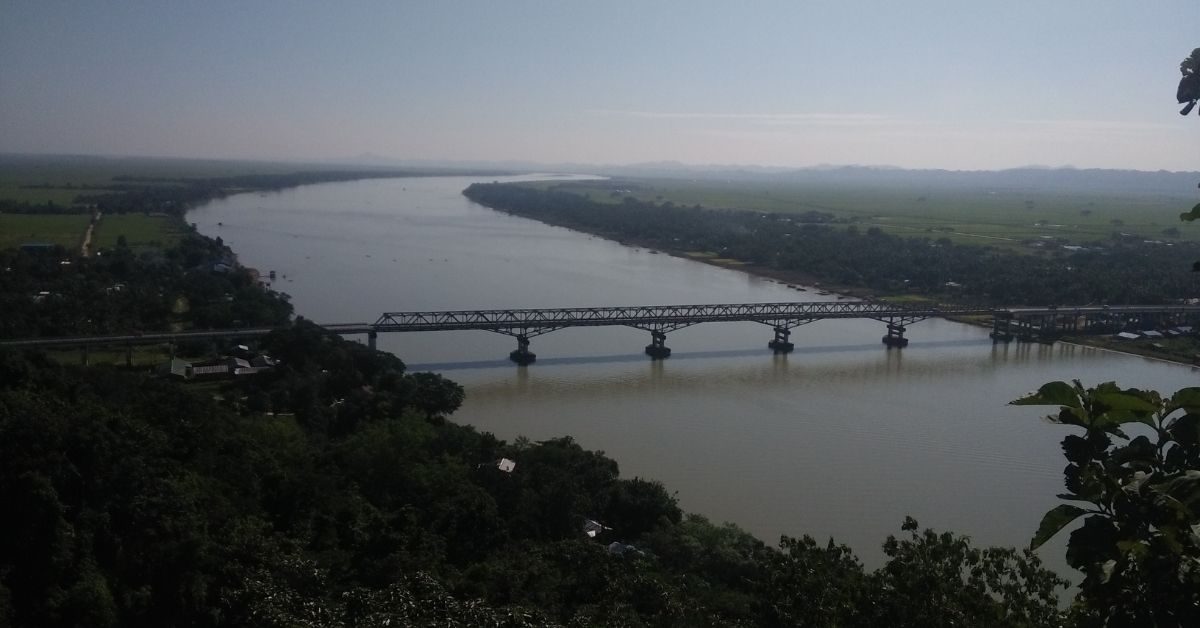India is pushing ahead with the Kaladan transit project in Myanmar’s Rakhine state as it is seen as key to improving connectivity with the landlocked northeastern states and creating conditions to facilitate the repatriation of Rohingya refugees.
The Kaladan multi-modal transit transport project, being implemented with an Indian grant of $484 million, includes development of Sittwe port in Myanmar, an inland water terminal at Paletwa on the Kaladan river and creating road connectivity from Paletwa to Zorinpui in Mizoram.
The project has been hit by delays due to work being affected by the Covid-19 pandemic and the threat posed by rebels of the Arakan Army, which has targeted the shipment of materials for the infrastructure project and attacked Myanmar troops providing security to the venture.
During a visit by foreign secretary Harsh Shringla and Indian Army chief Gen MM Naravane to Myanmar last October, both sides discussed the operationalisation of Sittwe port in the first quarter of 2021. Despite questions raised by the military coup in Myanmar, recent remarks by external affairs minister S Jaishankar indicated the project is on track.
“The Kaladan multi-modal transport link, including the Sittwe port and the Paletwa inland water terminal, will add to our access to the Myanmar coastline,” Jaishankar said during an address in Guwahati on Monday.
The project is aimed at enhancing access to the sea for the seven northeastern states, which are currently dependent on ports in Bangladesh. Access to a port in Myanmar will shorten the distance for transporting heavy cargo for northeastern states such as Manipur and Mizoram, which share borders with Myanmar.
The Indian government is also keen on the project as it believes it will boost economic development in Rakhine state and create the grounds for the return of Rohingya refugees currently sheltering in Bangladesh. India, which has often been nudged by Bangladesh to help facilitate the repatriation of the refugees, believes the best course for it in this matter is to create conditions in Rakhine for the safe and sustainable return of the Rohingyas, people familiar with developments said on condition of anonymity.
Another reason for India’s push for the Kaladan project is to counter China’s plans to create the China-Myanmar Economic Corridor (CMEC) centred round a deep-water port at Kyaukpyu in Rakhine state.
The people said one of the crucial portions of the Kaladan project, which has faced several delays, is the construction of a 109-km road from Zorinpui in Mizoram to Paletwa in Myanmar. This work is expected to take some more time, the people said.
The parliamentary committee on external affairs, in a recent report, expressed concern that current allocation of funds for Myanmar was “not congruent with the ongoing strategic projects” such as the Kaladan project. The committee also called on the external affairs ministry to take adequate steps to ensure the allocations are used optimally for completing ongoing projects.
The ministry, in its reply to the committee, said the status of the road segment of the Kaladan project is being closely monitored along with the department of heavy industries, the parent department of Engineering Project (India) Limited that is part of the joint venture implementing the project. India’s budget for 2021-22 included an outlay of ₹400 crore as grants and loans for Myanmar.
Former ambassador Rajiv Bhatia, distinguished fellow for foreign policy studies at Gateway House, said the Kaladan project will improve connectivity by facilitating the shipment of cargo from India’s eastern ports to Myanmar and to the northeastern states.
“The essential idea is to provide the northeast with quick access to the sea via Myanmar and also to help boost exports from the northeastern states,” said Bhatia, who served as India’s envoy to Myanmar.
Source : Hindustan Times







